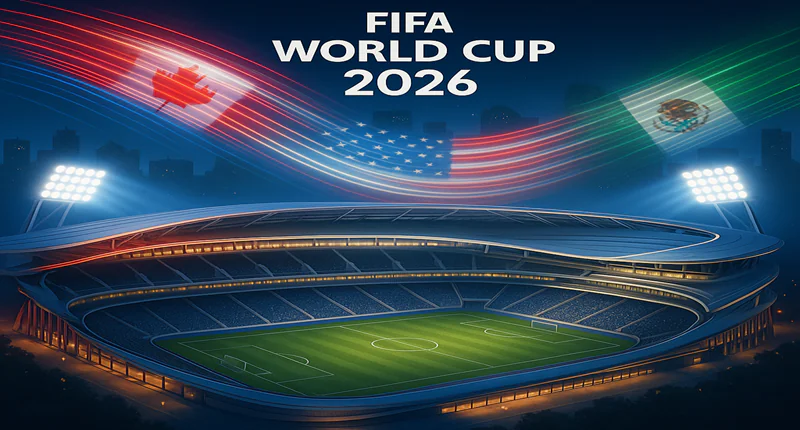The footballing world is on the cusp of a revolution, and frankly, we can barely contain our excitement! The decision to expand the FIFA World Cup to a colossal 48 teams isn’t just a slight tweak; it’s a seismic shift that promises to rewrite history. Gone are the days when qualification felt like an exclusive club, now more nations than ever before will get to taste the ultimate glory of participating on the grandest stage. This expansion isn’t just about more matches; it’s about more dreams, more stories, and an unprecedented level of global representation that will undoubtedly change the face of international football forever.
So, with this thrilling new chapter about to unfold, the burning question on every fan’s mind is: which nations will step up and truly make history in this expanded tournament? Will it be the traditional powerhouses continuing their reign, or will we witness a new wave of challengers rising from the shadows? The anticipation is palpable, and the possibilities are endless. It’s not just about who lifts the trophy; it’s about who leaves an indelible mark, who inspires a generation, and who finally gets their moment in the sun.
The Dawn of a New Era in World Football
The shift to a 48-team format is more than just adding extra slots; it’s a philosophical statement about the global nature of football. For decades, the World Cup was a beautiful but often exclusive club, leaving deserving nations from emerging football regions watching from the sidelines. Now, with more pathways to qualification, we’re set to witness a truly global festival, showcasing diverse playing styles, passionate fan bases, and a broader spectrum of talent that was previously underexposed. Imagine the sheer jubilation in countries that have only ever dreamed of this moment – it’s going to be a pure footballing spectacle unlike anything we’ve ever seen.
This expansion fundamentally alters the strategic landscape of international football. Federations worldwide, seeing a more tangible path to the World Cup, will likely invest more heavily in youth development, coaching, and infrastructure. This long-term impact could lead to a significant uplift in the overall quality of football in regions previously considered “minor.” We’re not just expanding a tournament; we’re democratizing the sport, giving countless more players and nations the chance to compete at the very highest level, thereby enriching the global game as a whole.
Newcomers Poised to Etch Their Names
This is arguably the most exciting aspect of the new format: the potential for genuine debutantes and previously fringe nations to finally step onto the World Cup stage. Picture the scenes when a country that has never qualified before – perhaps an emerging football nation from Southeast Asia, Central America, or a long-overlooked African team – plays its first-ever World Cup match. The national pride, the collective outpouring of emotion, and the sudden spotlight on their domestic leagues will be immense. For these nations, simply being there is an enormous victory, a validation of years of hard work and a powerful catalyst for future growth.
But don’t mistake participation for mere presence; these “newcomers” will arrive with an insatiable hunger to prove themselves. History shows us that debutants, or teams making a rare appearance, often play with an incredible underdog spirit and a fearless approach, leading to shocking upsets. Think about Costa Rica’s run in 2014, or Senegal’s stunning debut in 2002. With more such teams in the mix, the group stages will be less predictable, offering thrilling narratives where traditional giants will be tested by highly motivated, often tactically astute, and fiercely passionate opponents looking to etch their names into football folklore.
Giants Brace for Unprecedented Hurdles
While the expanded format opens doors for many, it also presents a fascinating new challenge for the established footballing giants. For nations like Brazil, Germany, Argentina, or France, qualification might become slightly less stressful, but their path through the tournament itself could become surprisingly trickier. With more teams and a wider array of playing styles, the early knockout rounds, and even the group stages, will feature opponents who are less familiar and potentially more unpredictable. They can no longer just expect a straightforward progression based purely on pedigree; every match will demand absolute focus and tactical adaptability against hungry underdogs.
The sheer length and intensity of a 48-team tournament will also test the mental and physical fortitude of even the deepest squads. More games, more travel, and more diverse opponents mean less room for complacency and a heightened risk of burnout or injury. While the top teams will always possess superior individual talent, the grind of facing a greater variety of competitive teams could lead to more surprising results. We might see traditionally strong nations pushed to their limits earlier than usual, making for a more unpredictable and nail-biting competition where every single game genuinely matters, not just for the minnows, but for the reigning champions too.
The expanded 48-team World Cup is more than just an increase in numbers; it’s a promise of unparalleled excitement, a broadening of football’s global reach, and a guarantee of fresh narratives. From the joyous debutantes looking to make their mark to the seasoned giants navigating a more treacherous path, every corner of the tournament will be brimming with potential history-makers. This new era will challenge our preconceptions, ignite new rivalries, and undoubtedly deliver some of the most memorable moments in football history. Get ready, because the beautiful game is about to get a whole lot bigger, bolder, and more beautiful.
